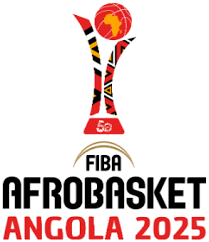Stakeholders have attributed Nigeria’s poor showing at the 2025 FIBA Men’s Afrobasket Championship in Angola to administrative instability, poor funding and the absence of a professional domestic league.
Correspondent reports that D’Tigers crashed out after a 91–75 quarter-final loss to Senegal at the Pavilhão Multiusos Arena in Luanda, finishing fifth in the competition.
Nigeria, once a dominant force on the continent and champions in 2015, struggled through the group stage before bowing out to a tactically superior Senegalese side.
Reacting to the team’s exit, Igoche Mark, basketball promoter and founder of the Mark D’Ball Championship, described the situation as “deeply troubling,” blaming years of poor leadership and policy inconsistency.
*“Enough is enough. We cannot continue like this. Basketball in Nigeria has no structure, no direction. Since 2017, we have not had a functional domestic league. That is unacceptable.
“The time for politics is over. Basketball must return to the courts, not the courtrooms,”* he said.
Mark urged the National Sports Commission (NSC) to intervene decisively to sanitise the system, warning that many talented players were being lost to other countries due to a lack of local opportunities.
Similarly, former D’Tigers captain, Olumide Oyedeji, said the absence of a viable league was weakening Nigeria’s competitiveness.
“No country can succeed at the top without grassroots development and a strong domestic league. We are only recycling talent, not producing new stars,” Oyedeji told NAN.
The 2025 Afrobasket, which ran from Aug. 15 to 24, featured 16 teams and served as a pathway to the 2027 FIBA Basketball World Cup qualifiers.
Sports development consultant, Tunde Popoola, said Nigeria’s basketball infrastructure had failed to keep pace with continental standards.
“Our basketball system is outdated. Countries like South Sudan, Rwanda and Cape Verde are investing in their leagues and reaping the rewards. We are stuck in crisis mode,” Popoola said.
Meanwhile, fans and former players have taken to social media to express disappointment over the team’s performance, demanding accountability from sports authorities.
As calls for reform grow louder, stakeholders agree that only a clear roadmap, driven by competent leadership and backed by government policy, can restore Nigeria’s basketball to its former glory.
(NAN)


